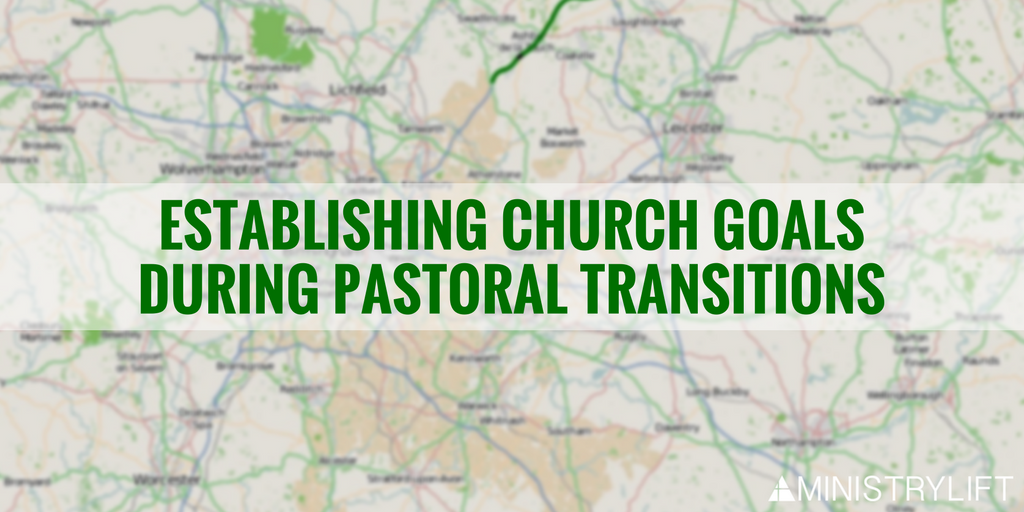Establishing Church Goals During Pastoral Transitions
 Times of pastoral transition are windows of opportunity for a congregation to experience turning points towards health and renewed ministry. Welcoming a new senior pastor into a healthy, functional, and spiritually-renewed church community is a goal worth pursuing!
Times of pastoral transition are windows of opportunity for a congregation to experience turning points towards health and renewed ministry. Welcoming a new senior pastor into a healthy, functional, and spiritually-renewed church community is a goal worth pursuing!
There are two approaches to pastoral transition―a more traditional approach or an intentional-transitional approach. There was a day when a "hold-the-fort-until-the-next-pastor-arrives" mindset worked, but this is less effective today.
The Intentional-Transitional Approach
The intentional-transitional approach focuses on seeing the time between pastors as a season of opportunity, and a time to facilitate meaningful and sustainable change. In this model, the transitional leader is a trained specialist and prepares the congregation to eventually do their search from a posture of health, prayer, and readiness.
The Five Benefits to the Intentional-Transitional Model
Why is it worth taking the time and trouble to engage in a well-planned transition? Let me give you with five of the benefits:
1. During transition, you can create an atmosphere that fosters positive change and healthy adjustment.
2. During transition, you have the opportunity to bring in outside specialists who are equipped to facilitate change―a luxury you often can’t afford during seasons of regular ministry.
3. During transition, the focus on overall church health sets up the search process to be conducted from a place of strength, clear identity, and vision.
4. The intentional-transitional model allows a congregation to work systematically through a process that recognizes key milestones and gives opportunity to involve new people.
5. The transitional model gives the opportunity to deal with unwanted sacred cows and elephants too difficult to tackle during seasons of normal ministry.
Eight Transitional Goals
Below are descriptions of the eight transitional goals you seek to achieve during the transitional process. There is flexibility in how to achieve these goals, but the principles are fixed.
1. Facilitating Closure
Closure involves dealing with the past so as not to hinder what God is wanting to do in the future. A transitional leader serves as counselor and skilled listener―helping individuals relate to and deal with their past so it does not negatively impact God’s plan for the future.
2. Facilitating Preaching


 Dads and grads receive a lot of attention during the month of June. But this is also the season when many church programs near their finish line. For some ministry leaders, this means added responsibilities. This can also mean more hours and more stress.
Dads and grads receive a lot of attention during the month of June. But this is also the season when many church programs near their finish line. For some ministry leaders, this means added responsibilities. This can also mean more hours and more stress.